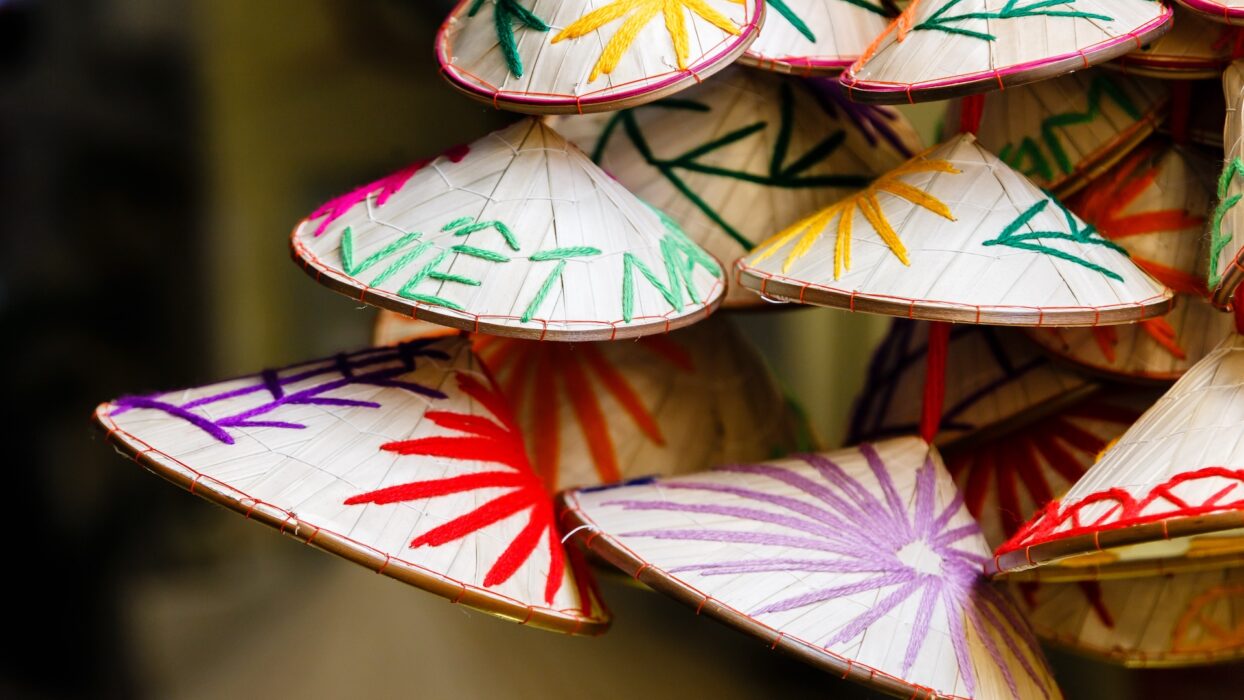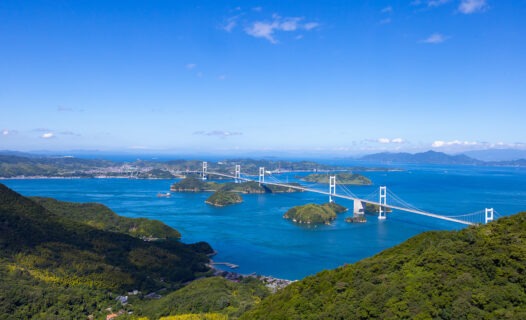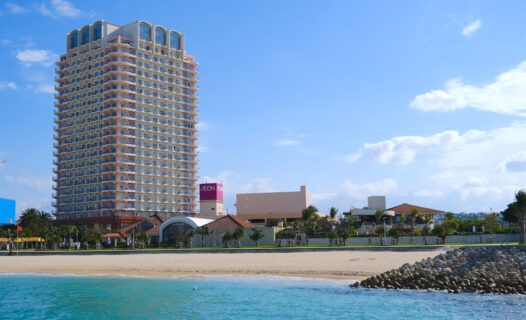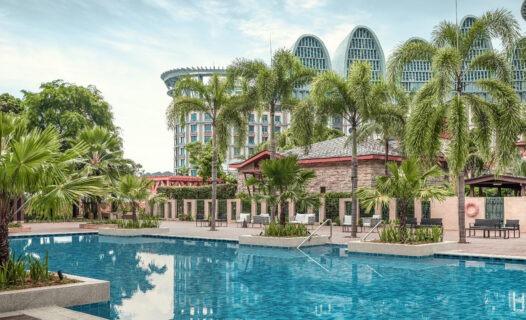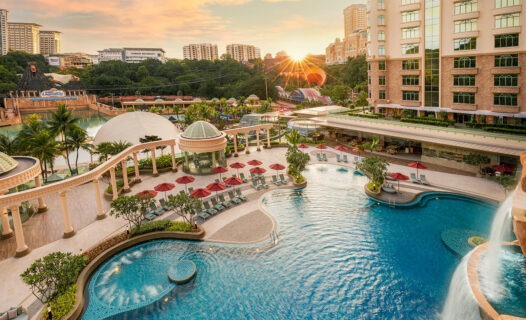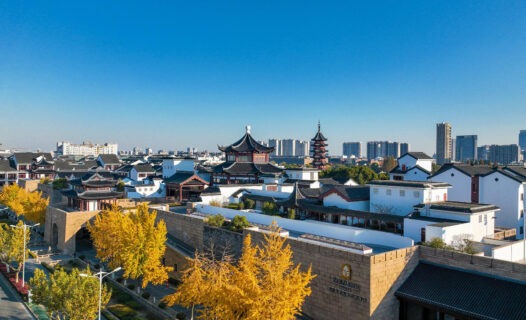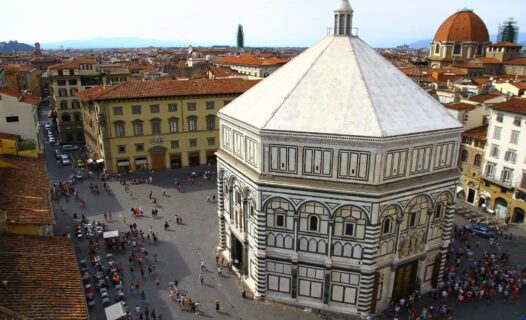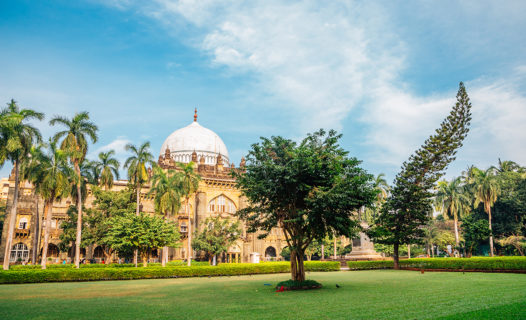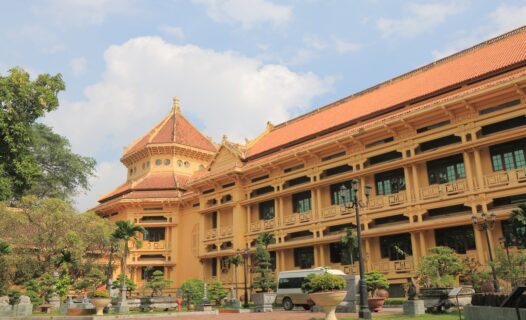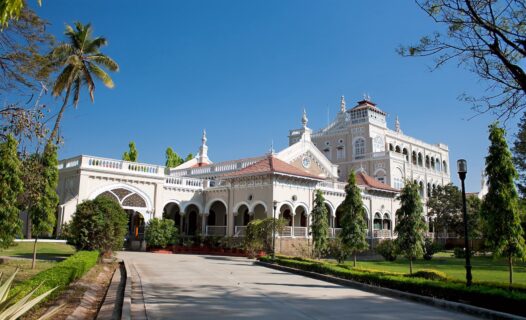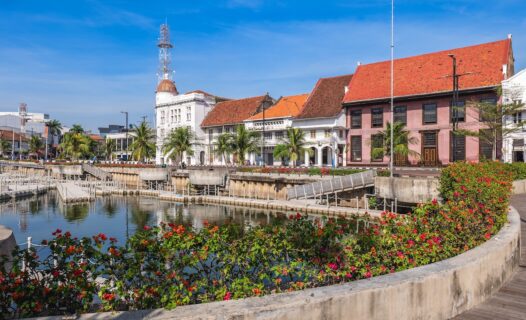Introduction
Ho Chi Minh City, a vibrant hub of history and culture, is home to one of Vietnam’s most iconic landmarks: the Independence Palace. Known as the Reunification Palace to some, this architectural gem is not just a beautiful sight; it embodies the spirit and resilience of the Vietnamese people. With its rich history, particularly during the Vietnam War, the palace stands as a testament to the country’s journey towards independence and unity.
As you stroll through its grand halls and lush gardens, you’ll quickly sense the significance this place holds in Vietnam’s past. The Independence Palace is not only a historical site but also a stunning example of architecture that blends traditional Vietnamese elements with French colonial influences. Get ready to explore this magnificent landmark that has witnessed pivotal moments in Vietnam’s history!
Discovering the Independence Palace: A Historical Treasure
The Independence Palace history is steeped in tales of bravery and resilience. Originally built in the late 1960s, the palace served as the home and workplace of the President of South Vietnam during the tumultuous years of the Vietnam War. Its walls have seen both celebrations and sorrow, making it a crucial part of Ho Chi Minh City history.
On April 30, 1975, the palace became the focal point of the end of the Vietnam War when North Vietnamese troops stormed its gates, marking the reunification of Vietnam. This dramatic event is commemorated in the palace’s museum, where visitors can learn about the historical significance of this landmark and its role in shaping the nation.
As a cultural landmark, the Independence Palace is more than just a building; it represents the heart and soul of Vietnam. It stands as a symbol of peace and reconciliation, drawing thousands of visitors each year who are eager to connect with the history that unfolds within its walls. Whether you’re a history buff or simply curious about Vietnam’s past, a visit to the Independence Palace is an enriching experience you won’t want to miss!
Architectural Marvel: The Design of Independence Palace
As you approach the Independence Palace architecture, prepare to be captivated by its unique design. The palace was crafted by the talented architect Ngô Viết Thụ, who seamlessly blended traditional Vietnamese motifs with elements of French colonial architecture. The result is a stunning structure that reflects both the country’s heritage and its modern aspirations.
From the moment you step inside, you’ll notice the spacious halls adorned with intricate details and elegant furnishings that tell stories of the past. The grand staircase, the lush gardens, and the iconic helipad all contribute to the palace’s charm and grandeur. Each room has its own character, with the Banquet Hall being a highlight, showcasing opulent decor and providing a glimpse into the lavish events that once took place here.
The palace’s architecture is not just about aesthetics; it also serves a purpose. The design incorporates elements that promote natural light and ventilation, making it a comfortable space for its occupants. As you wander through the various rooms, take a moment to appreciate the thoughtfulness behind every architectural choice.
For those interested in historical landmarks in Vietnam, the Independence Palace is a must-see. Its unique blend of styles and rich history make it a standout attraction in Ho Chi Minh City.
Visitor Experience: What to Expect at Independence Palace
Visiting the Independence Palace is an experience that goes beyond just sightseeing. With various Independence Palace tours available, you can choose to explore the palace at your own pace or join a guided tour to gain deeper insights into its history. The knowledgeable guides will share fascinating stories and anecdotes that bring the palace to life, making your visit truly memorable.
As you explore, don’t miss the chance to visit key areas within the palace, such as the Banquet Hall, where important state functions were held, and the war command bunker, which played a crucial role during the Vietnam War. Each corner of the palace is steeped in history, offering a glimpse into the lives of those who once walked its halls.
For those looking to combine their visit with some Saigon sightseeing, the Independence Palace is conveniently located near other historical sites and attractions in Ho Chi Minh City. Whether you’re a local or a traveler, this landmark promises an enriching experience that connects you to Vietnam’s past.
A Day in Ho Chi Minh City: Your Perfect Itinerary for Visiting Independence Palace
Planning a visit to the Independence Palace? You’re in for a treat! This iconic landmark is best enjoyed with a well-structured itinerary that allows you to soak in the history, culture, and culinary delights of Ho Chi Minh City. Here’s a suggested day plan to make the most out of your visit.
Morning: Start at Independence Palace
Kick off your day with a visit to the Independence Palace. Aim to arrive early to avoid the crowds and have ample time to explore. Spend about 1.5 to 2 hours wandering through the grand halls, the war command bunker, and the lush gardens. Don’t forget to snap some photos of the stunning architecture and the iconic helipad! For a deeper understanding, consider joining a guided tour where knowledgeable guides share captivating stories about the palace’s history.
Late Morning: Explore Nearby Attractions
After immersing yourself in the palace’s history, take a short stroll to the War Remnants Museum. Just a 15-minute walk away, this museum offers a poignant look at the Vietnam War through photographs, artifacts, and exhibits. Allocate about 1 hour for this visit. The museum’s powerful stories will further enrich your understanding of Vietnam’s past.
Lunch: Savor Local Flavors
Feeling hungry? Head to one of the nearby eateries to indulge in some local cuisine in Ho Chi Minh City. Try the famous pho or banh mi at Banh Mi Huynh Hoa, which is just a short walk from the museum. Enjoy your meal while soaking in the lively atmosphere of the city.
Afternoon: Visit the Central Post Office and Notre-Dame Cathedral
After lunch, make your way to the Central Post Office, an architectural masterpiece designed by Gustave Eiffel. Spend about 30 minutes admiring the stunning interior and snapping photos. Right across from the post office is the Notre-Dame Cathedral, a beautiful example of French colonial architecture. Take some time to explore the grounds and appreciate the intricate details of the building.
Evening: Relax at Ben Thanh Market
As the sun begins to set, head over to Ben Thanh Market for some shopping and street food. This bustling market is a perfect place to pick up souvenirs and try local snacks like fresh spring rolls and coconut candy. Spend around 1-2 hours here, soaking in the vibrant atmosphere and maybe even bargaining for some unique finds!
Dinner: A Culinary Experience
Wrap up your day with dinner at one of the nearby restaurants. Consider trying Vietnamese BBQ or a seafood feast at Nha Hang Ngon, where you can enjoy a delightful array of dishes in a charming setting. Savor the flavors of Vietnam and reflect on the incredible day you’ve had.
Culinary Delights: Savoring Local Cuisine Near Independence Palace
What’s a trip to Ho Chi Minh City without indulging in its mouthwatering food scene? The area surrounding the Independence Palace is brimming with eateries that serve authentic Vietnamese dishes. Here are some must-try culinary delights:
1. Pho
This iconic Vietnamese noodle soup is a must-try. Head to Pho Hoa, one of the most famous pho spots in the city, located just a short distance from the palace. The fragrant broth and tender meat will leave you craving more!
2. Banh Mi
Grab a banh mi sandwich from Banh Mi 25. This delicious baguette filled with meats, pickled vegetables, and herbs is perfect for a quick lunch while exploring the city. Don’t forget to try their special sauce for an extra kick!
3. Fresh Spring Rolls
For a light and refreshing snack, try goi cuon, or fresh spring rolls. You can find these at many local eateries, and they’re typically served with a peanut or hoisin dipping sauce. They make for a perfect appetizer or snack while you’re on the go!
4. Vietnamese Coffee
Finish off your meal with a cup of Vietnamese coffee. Known for its strong flavor, it’s often served with sweetened condensed milk. Visit a local café near the palace to experience this delightful beverage.
Cultural Experiences: Engaging with Ho Chi Minh City’s Heritage
Ho Chi Minh City is rich in culture, and there are plenty of experiences that allow visitors to engage with its heritage. Here are a few suggestions that you can enjoy during your visit:
1. Attend a Cultural Performance
Check out the Saigon Opera House for traditional Vietnamese performances, including folk music and dance. These shows provide a glimpse into the country’s rich artistic traditions and are a fantastic way to spend an evening.
2. Visit Local Markets
Explore local markets like Ben Thanh Market or Tan Dinh Market. These vibrant spots are perfect for picking up unique handicrafts and experiencing the hustle and bustle of daily life in Ho Chi Minh City.
3. Participate in a Cooking Class
For a hands-on experience, consider joining a cooking class. Many local chefs offer classes where you can learn to prepare traditional Vietnamese dishes. It’s a fun way to immerse yourself in the culture and take home a new skill!
Practical Information for Travelers: Your Guide to Independence Palace
Before you head out to visit the Independence Palace, here’s some essential information to keep in mind:
Opening Hours and Tickets
The Independence Palace is open daily from 7:30 AM to 6:00 PM. Entrance fees are quite reasonable, making it accessible for all visitors. Be sure to check for any special events or closures on their official website before your visit.
Accessibility
The palace is wheelchair accessible, with ramps and elevators available for visitors with mobility challenges. It’s a good idea to inform the staff upon arrival if you need assistance.
Transportation Options
Getting to the Independence Palace is easy! It’s centrally located, so you can reach it by taxi, motorbike taxi, or even by walking if you’re staying nearby. If you’re using public transport, several bus routes pass close to the palace.
Seasonal Travel Insights: Best Times to Visit Independence Palace
Planning your visit around the weather can enhance your experience at the Independence Palace. Here’s what to keep in mind:
Optimal Months
The best time to visit Ho Chi Minh City is between December and April. This period offers dry and sunny weather, perfect for exploring the city’s outdoor attractions. If you visit during these months, you can enjoy the lush gardens of the palace in full bloom!
Avoiding Crowds
To avoid large crowds, try to visit on weekdays, particularly in the morning. Early birds will have a better chance of enjoying the palace’s beauty without the hustle and bustle of tourists.
Safety and Health Guidelines: Preparing for Your Visit
Your safety is paramount while exploring Ho Chi Minh City. Here are some tips to keep in mind:
Health Precautions
Stay hydrated, especially if you’re visiting during the hotter months. Carry a water bottle, and don’t hesitate to take breaks in shaded areas to avoid heat exhaustion.
Safety Tips
As with any bustling city, be mindful of your belongings and stay aware of your surroundings. Use reputable transportation services and avoid walking alone late at night in less crowded areas.
Fun Facts about Independence Palace: Did You Know?
Here are some intriguing tidbits about the Independence Palace that will impress your fellow travelers:
1. A Secret Bunker
The palace houses a secret bunker used during the Vietnam War, which is still intact today. It served as a command center for the South Vietnamese government and is a fascinating part of the palace’s history.
2. A Symbol of Reunification
The palace is often referred to as the Reunification Palace due to its significance in the reunification of Vietnam in 1975. The event is a pivotal moment in the nation’s history and is commemorated through various exhibits within the palace.
3. Architectural Features
The palace’s design includes elements that reflect traditional Vietnamese architecture, such as the use of lotus motifs and a harmonious layout that promotes peace and tranquility.
Commonly Asked Questions (FAQs) about Independence Palace
Here are some frequently asked questions to help you plan your visit:
What are the Independence Palace opening hours?
The palace is open from 7:30 AM to 6:00 PM every day.
How much is the entrance fee?
Entrance fees are affordable, making it accessible for all visitors. Check the official website for the latest pricing.
Are guided tours available?
Yes! Guided tours are offered, providing deeper insights into the palace’s history and significance.
Shopping Guide: Souvenirs and Local Crafts Near Independence Palace
Don’t leave Ho Chi Minh City without picking up some unique souvenirs! Here are some shopping spots near the Independence Palace:
1. Ben Thanh Market
As mentioned earlier, this bustling market is a treasure trove for souvenirs, from handicrafts to clothing. Bargain with the vendors for the best deals!
2. Local Artisan Shops
Explore local artisan shops around the palace for handmade crafts, traditional Vietnamese clothing, and beautiful lacquerware. These make for perfect gifts or keepsakes from your trip.
3. Street Vendors
Don’t forget to check out the street vendors selling unique trinkets and snacks. You might find something special to take home!
Transportation Details: How to Get to Independence Palace
Getting to the Independence Palace is easy, thanks to its central location. Here’s a quick guide on transportation options:
1. Taxi Services
Taxis are readily available throughout the city. Opt for reputable companies like Vinasun or Mai Linh for safe and reliable rides.
2. Motorbike Taxis
If you’re feeling adventurous, try a motorbike taxi for a thrilling ride through the city streets. Just be sure to wear a helmet!
3. Public Transport
Buses are a budget-friendly option, with several routes stopping near the palace. Check local schedules for the most convenient routes.

